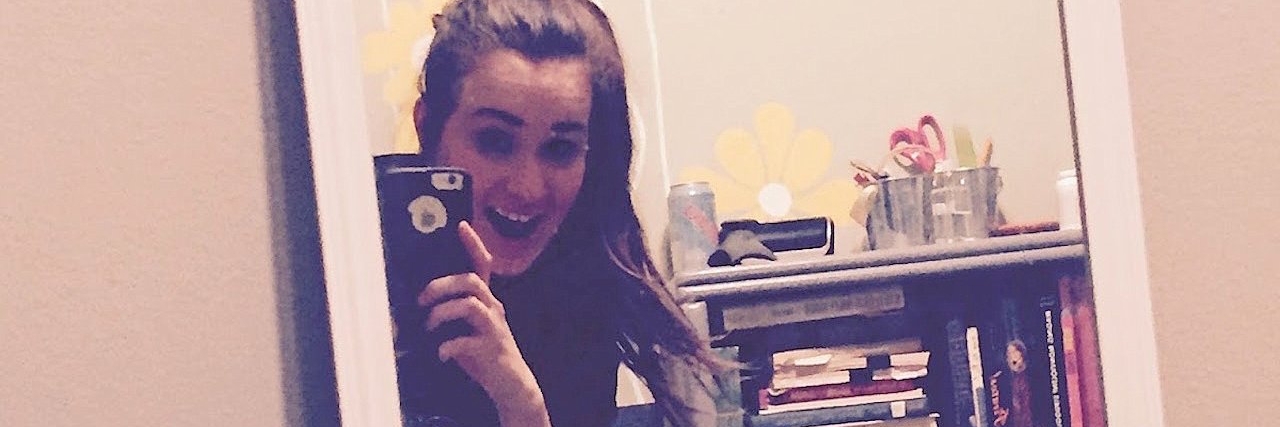Just over five years ago, my life changed when I got sick. Relative to the span of a lifetime, five years isn’t a big deal. But for me, it represents more than 1,800 days of surviving life as a sick person.
I watched as my peers spent time and resources investing in their dreams, while I was stuck with a monthly medical bill and the dread of reading lab results. I’ll be the first to say it was no walk in the park, and, in fact, most of the time it felt more like a marathon sprint through Mordor from “The Lord of the Rings,” but somewhere along the way it shifted how I see the world.
Today my life is different compared to what it was like when I first got sick. In all regards, I’m healthier and my days are happier and much less painful. My outlook has changed from fear to hope. I’m really lucky.
While I want to honor all the good days I’ve had, I also want to honor the times in which I had to fight my hardest. Although I probably didn’t see it in the heat of the moment, my bad days often became my biggest reminder that despite my illness, I’m not so different from the people around me. When it comes down to it, the bad has taught me a lot about the good.
Yesterday I turned 23, and while I’m happy to report it was a good day, the night before was tough. Littered across my bed around midnight were remnants of about 30 different medical supplies, including supply wrappers, syringes, two kinds of insulin, my tester, four different kinds of pump supplies, a bottle of water, medication to help with nausea and a full can of diet ginger ale I couldn’t quite stomach.
I sat on the floor at the foot of my bed and was struggling to catch my breath and hugging my knees, trying hard not to lose it before getting insulin into my system.
When the days are bad, they’re really bad.
I got three restless hours of sleep that night after going into what was likely accidental ketoacidosis. In my case, it was due to a malfunctioning insulin pump. The next morning I woke up nine minutes before I had to leave for work and trudged out the door dizzy, distracted and disappointed.
It took me a few hours to get my body back to normal. The kids I nanny wanted to know why I couldn’t play kickball, and I’m sad to say I didn’t have it in me to tell the truth. I was just scared to admit that my body had been through a traumatic medical incident the night before. Explaining what I really wanted in that moment was to be in my bed seemed like such a defeat. So I did what I thought any well-adjusted young person would do: I lied.
Although there are a lot of sad things that stem from hard days, the worst is the lying. The fact that I often become a liar just to get through a bad day is frustrating, and while it goes against everything I believe in, it’s become this survival tactic I can’t quite quit cold turkey.
I find that when you live with a chronic illness, you learn to survive by ignoring everything that doesn’t concern your next appointment, your next treatment or how sick you might feel tomorrow.
Over the years, I’ve come to look at diabetes as a high-stakes poker game I can’t escape. I’m playing with odds that often seem stacked against me, and if I’m being completely honest (I am and you’re next), I play with a sub-par poker face and a special set of nonexistent card-counting skills.
I suck at this whole diabetes thing, and although I’m generally pretty patient with myself, the consequences of making a mistake as a diabetic can have devastating results. I’ve found that the truth about bad days for a diabetic is they happen quickly, they take a long while to correct and they leave you reeling both physically and emotionally. I guess it’s often just a lot easier for me to lie about how hard it is to live with diabetes.
I wonder how much better my day would have been if I had just told the kids I was sick. I think so often as someone who lives with chronic illness that I resort to shutting down all the hard stuff so I can maintain some semblance of normality. While sometimes I think trying to stay normal is important, I also know that habitually ignoring the bad days grates on my sense of optimism.
Talking about bad days isn’t something many people — both healthy and sick — are good at. We so often wear masks constructed out of lies and delusions just to survive the day. As if having convinced others that we’re OK will help us fall under the same assumption. I wonder how much faster we would heal if we were just more honest about our challenges.
The truth is a liberating force even when it isn’t pretty or shiny or happy. We all have bad days. We all feel pain, and sadness and frustration. How much more gentle would we be with each other if we could see one another’s bad days as clearly as we see their good ones?
For me, my bad days come at the hand of chronic illness. Perhaps it’s different for you. The point is we don’t always know when, how or why another person faces challenges. What I do know is we’re connected because of three central ideas:
1. Everyone faces hard days.
2. Everyone could benefit from even an ounce of kindness.
3. Everyone has an ounce or two to share.
Let’s spread honesty by treating each other with an extra dose of kindness today.

